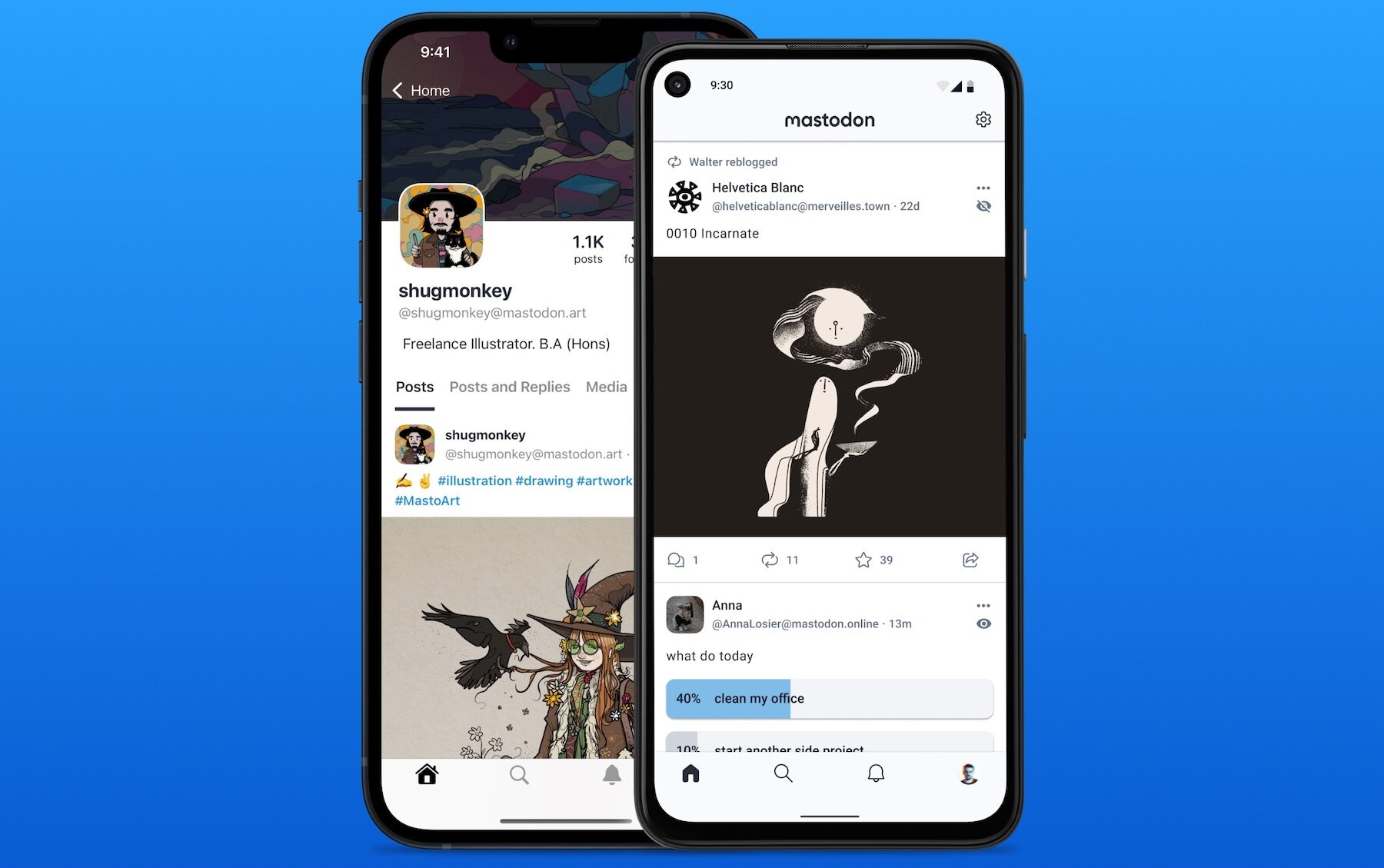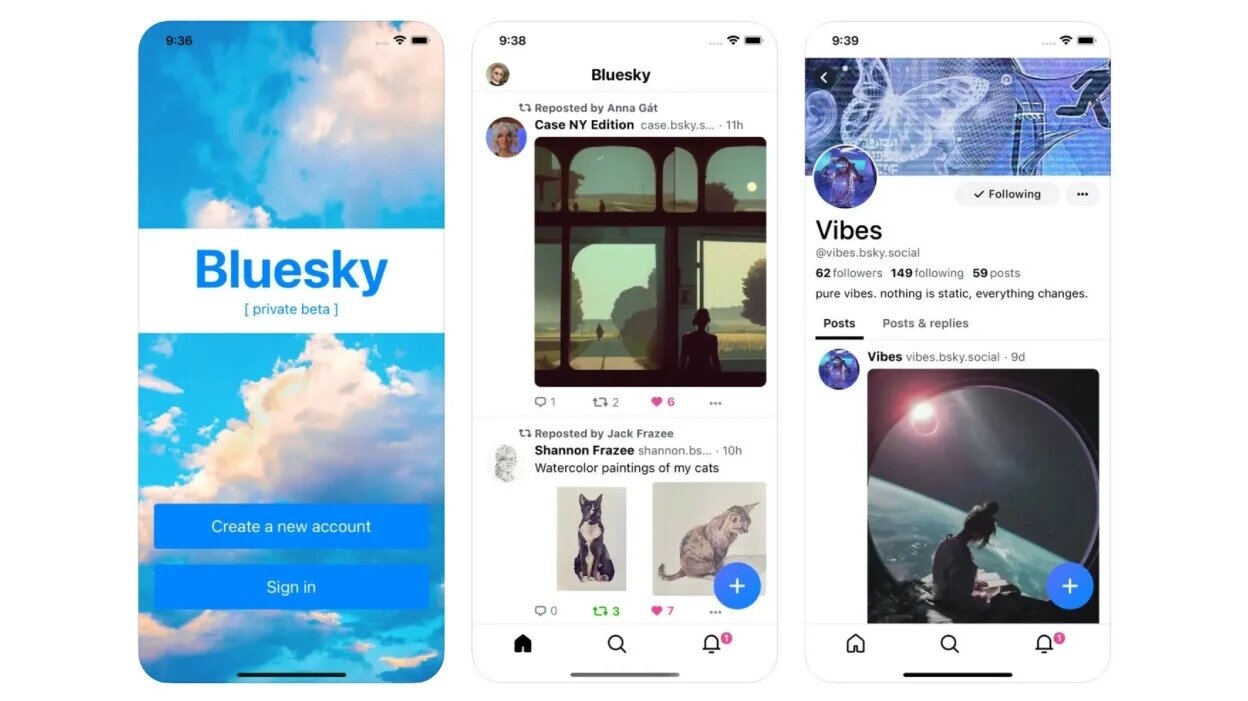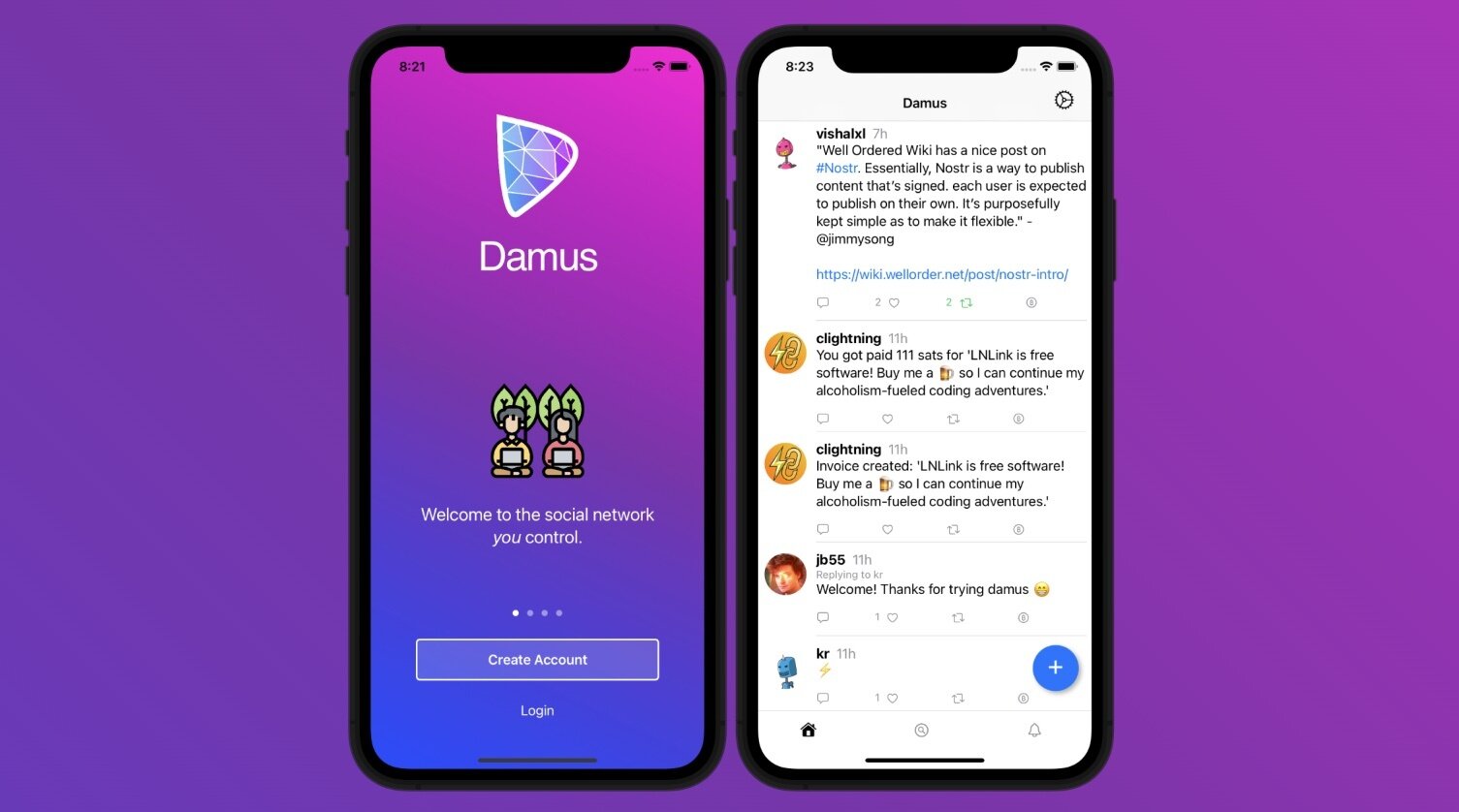- >News
- >What’s the Best Decentralized Social Media Platform? Bluesky, Mastodon or Nostr?
What’s the Best Decentralized Social Media Platform? Bluesky, Mastodon or Nostr?
With the takeover of Twitter by Elon Musk, many users who didn’t like his vision were wondering if there were other options. While there isn’t currently a comparable social media platform to Twitter, they’re certainly being developed and attracting new users.
Whether they’re able to take market share away from platforms like Twitter remains to be seen, but a decentralized social media platform is an option we should all like to have.
Why Do We Need Decentralized Social Media?
Unless you don’t use social media at all, you’ve likely experienced the often intrusive feeling of seeing an ad for something you just talked about. Maybe you just watched one video on cooking and now there’s one suggested every three posts as you’re scrolling. The reality is that the algorithms and centralization of social media are well-known. When’s the last time you actually saw all your friends’ posts in the order they were made?
You can’t even flip on a setting to change it so that you do see it in that order. It may be your social media, but what you see really isn’t up to you to a large extent. This is why we need decentralized social media; a way to view social media without ulterior motives from corporations. With the current social media setup, all your data is constantly being mined and sold to third-parties for various uses.
Three Decentralized Media Platforms
Below we’ve noted three of the best decentralized social media platforms currently available. They all offer a varied user experience and differ in the way they implement decentralization. That said, most of the apps look quite similar to Twitter.
Here’s the decentralized social apps in no particular order:
Mastodon
Mastodon believes that you know best what you want to see on your feed. There are no algorithms or ads to waste your time. You can follow anyone across any Mastodon server from a single account and receive their posts in chronological order.
Mastodon puts decision making back in users’ hands. Each server creates its own rules and regulations, which are enforced locally and not top-down like corporate social media, making it able to respond to the needs of different groups of people. Users can join a server with the rules they agree with, or host their own.
Mastodon uses a standardized, open protocol to implement decentralization, called ActivityPub. Any software that also uses ActivityPub can seamlessly communicate with Mastodon, just like Mastodon websites communicate with one another.
Bluesky
Bluesky was a project that was first started by Jack Dorsey when he was CEO of Twitter in 2019. Bluesky, the company, is a Public Benefit LLC owned by Jay Graber and the Bluesky team. Dorsey chose Jay to lead Bluesky, and Twitter paid Bluesky services income to build an open social protocol for public conversation, but this deal was ended in late 2022.
Like Nostr and Mastodon, Bluesky is building a protocol that can make social networks work more like email, blogs, or phone numbers, essentially simplifying what has become a complicated aspect of everyday life.
Bluesky uses the AT Protocol. The AT Protocol is an open-source framework for building social apps, allowing people to have transparency regarding how it is built and what is being developed. AT creates a standard format for user identity, follows, and data on social apps. This allows apps to interoperate and users to move across them freely. It is a decentralized network with the ability to have account portability.
On centralized social platforms, if you leave, you leave all your connections behind. Creating a standard format for identity and data gives people a way to relocate from that platform without leaving it all behind. If you don’t like the platform you’re on, you can change platforms and take all your data with you. Your friends will also still be able to find and stay in touch with you because of the standardized user identity format.
Bluesky is currently invite-only and has been generating a considerable amount of buzz by converting some of the most popular Twitter users and creating a more polished experience than some of its competitors.
Nostr
Nostr is a protocol that aims to create a censorship-resistant global social network. Interestingly Jack Dorsey also endorses and financially supports Nostr. In Nostr’s eyes, social media has become a key way information flows globally. Unfortunately, our current social media systems:
- Use your attention to sell ads
- Use bizarre techniques to keep you addicted (refer to point 1)
- Decide what content to show you based on a secret algorithm that you can’t inspect or change
- Have complete control over who can participate and who is censored
- Are overrun with spam and bots
Nostr also sees some issues with Mastodon which they’ve outlined:
- User identities are attached to domain names which are controlled by third-parties.
- These third-parties can ban you, just like centralized social media platforms. Server owners can also block other servers.
- There are no clear incentives to run servers, therefore they tend to be run by enthusiasts and people who want to have their name attached to a cool domain. This means users are subject to the despotism of a single person, which is often worse than that of a big company like Twitter, and they can’t migrate out.
- Since servers tend to be run by amateurs, they are often abandoned. This effectively bans everybody that signed up via that server.
Comparatively, Nostr uses just clients and relays. It is just a protocol; an agreed upon procedure for passing messages around on the internet. Users access Nostr (the protocol) via a client. The client can be web, desktop, or mobile apps. Damus is a popular app that uses Nostr. Clients can fetch data from relays and also generate new data and push that to relays so others can read. Users are identified with public keys, and posts are verified using those keys as well.
You can actually follow Twitter accounts through Nostr assuming the Twitter user has linked their Nostr public key to their Twitter account.




